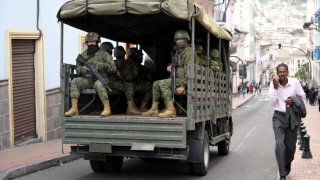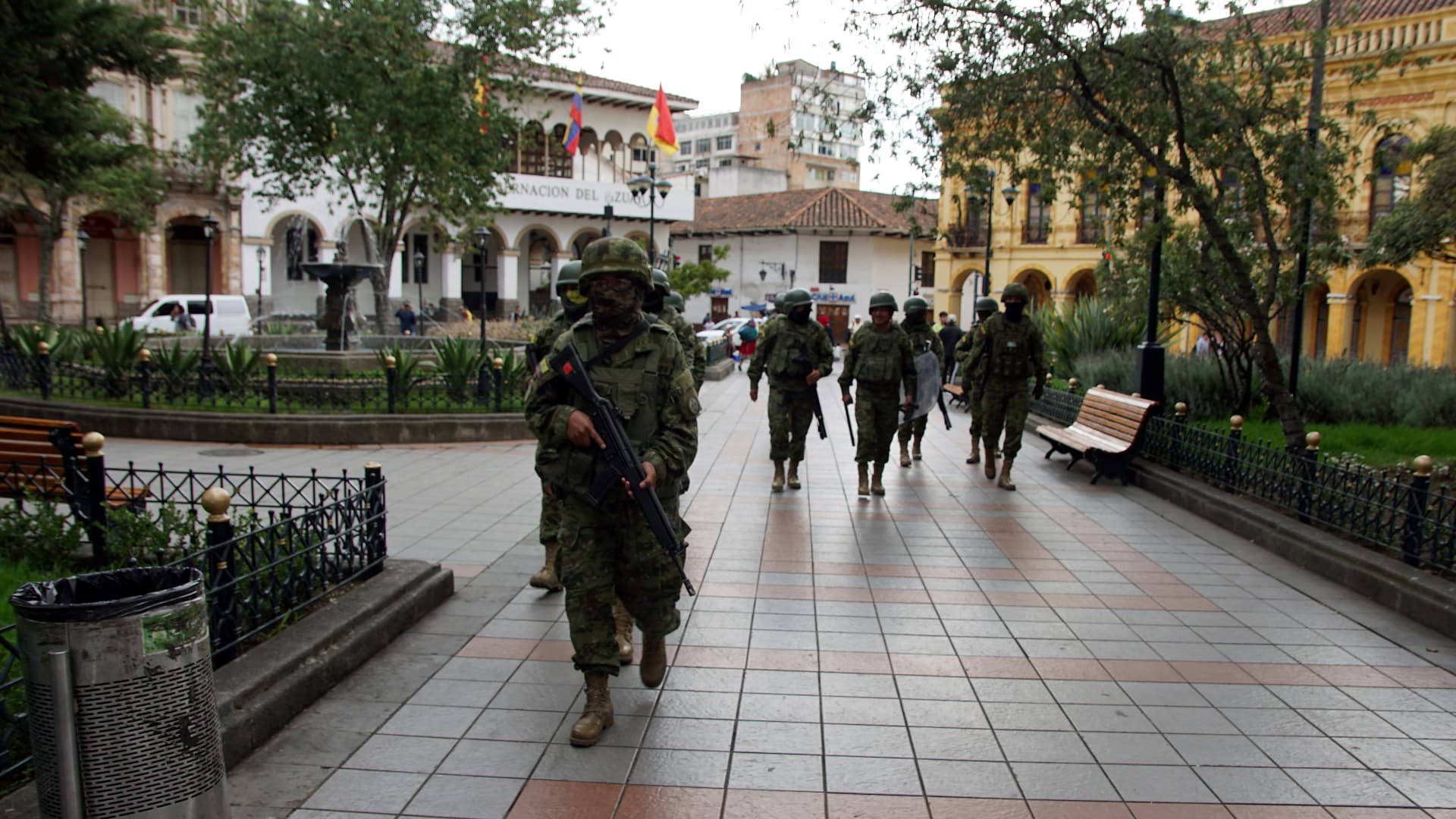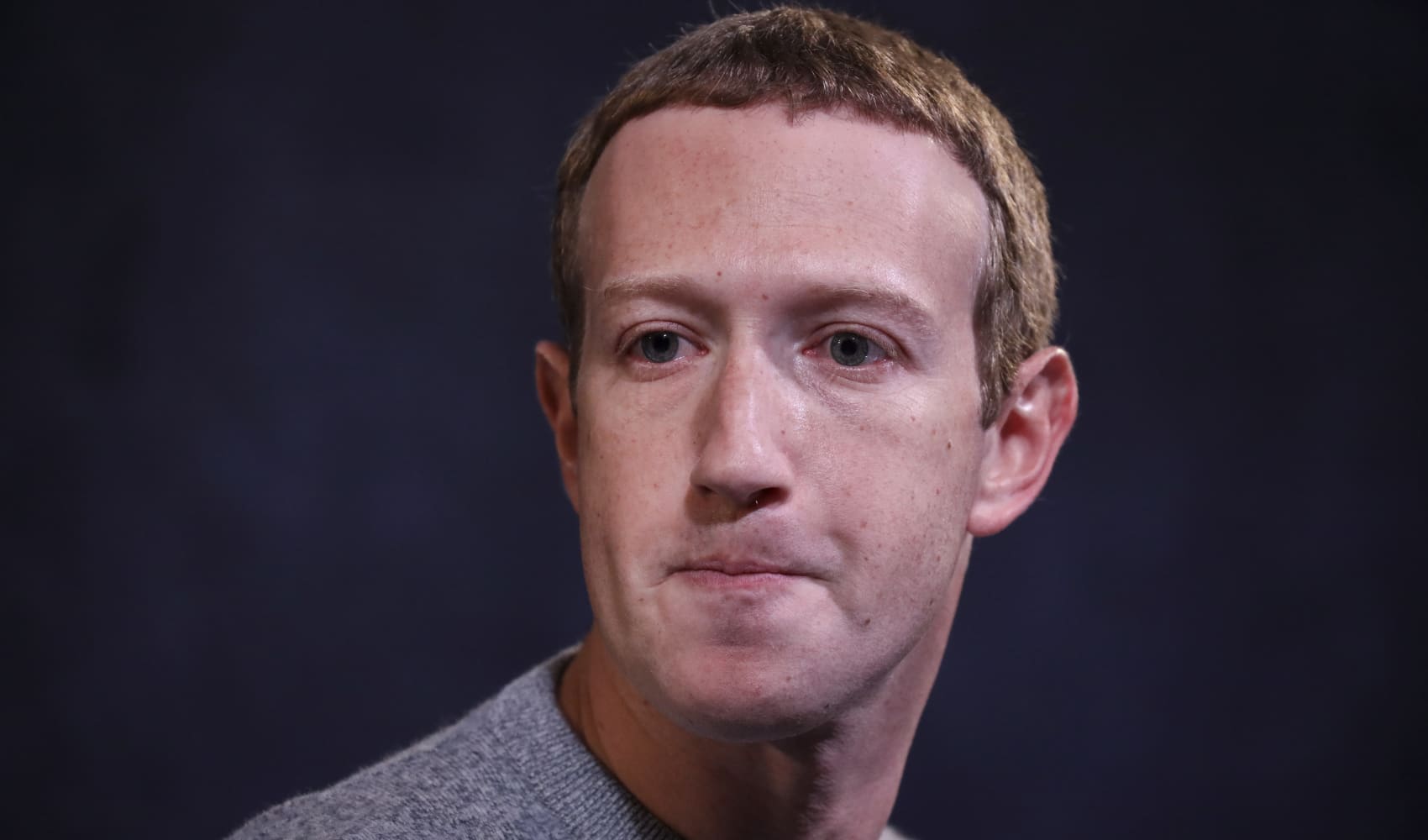
- Ecuador President Daniel Noboa has declared a state of "internal armed conflict" and identified more than 20 gangs as terrorist groups, making them military targets.
- The directive came shortly after days of violence culminated in an extraordinary attack when masked men on Tuesday broke onto the set of a public television channel in the port city of Guayaquil.
- Traditionally a peaceful country, a surge in violence in Ecuador in recent years has been linked to fighting between drug gangs.
Ecuador is in crisis mode, as it struggles to tackle a bloody drug war.
President Daniel Noboa, who vowed to "restore peace" when he came into power in November, has declared a state of "internal armed conflict" and designated more than 20 gangs as terrorist groups, making them military targets.
"I have ordered the Armed Forces to carry out military operations to neutralize these groups," Noboa said Tuesday on the X social media platform, formerly known as Twitter, according to a Google translation.
Get New England news, weather forecasts and entertainment stories to your inbox. Sign up for NECN newsletters.
The directive came shortly after days of violence culminated in an attack during which masked men broke onto the set of a public television channel in Guayaquil, considered to be the country's most dangerous city.
Waving guns and explosives, the intruders forced staff of the TC Television network to the floor during a live broadcast, while noises similar to gunshots could be heard in the background.
No one was killed in the attack, and authorities said that 13 people were arrested and will be charged with terrorism offenses.
Money Report
Guillaume Long, former foreign minister of Ecuador and a senior policy analyst at the Center for Economic and Policy Research, said Tuesday that the country's security situation had spun "out of control."
"Ecuador ended 2023 with the highest murder rate in LatAm," Long said on social media. "But today the situation spiralled out of control: jail breaks, simultaneous attacks, gunmen storming TV studio live on air…"
Violence in Ecuador
Ecuador, which exports crude oil, shrimp, bananas and coffee across the globe, is situated between Colombia and Peru — the two largest producers of cocaine in the world.
Traditionally a peaceful country, Ecuador has experienced a surge in violence in recent years linked to conflict between drug gangs, both foreign and domestic, which vie for control of ports and key cocaine routes to the U.S. and Europe.
Violent deaths in Ecuador rose to 8,008 last year, Reuters cited government figures as saying, nearly double the 2022 figure.

The U.S. Embassy in Ecuador says it is monitoring reports of criminal activity and other threats to the local safety of U.S. citizens.
Peru on Tuesday declared an emergency along its northern border with Ecuador, following the recent surge in violence.
Drug lord escapes prison
Ecuador's Noboa on Monday ordered a nationwide 60-day state of emergency, after notorious Los Choneros gang leader Adolfo Macías, known as "Fito," escaped from a low-security prison in Guayaquil on Sunday.
He was reportedly scheduled to be transferred to a maximum-security facility on the day of his disappearance.
It remains unclear whether the incident is connected to the storming of the TV studio.
The government of Ecuador has said at least 30 attacks have taken place since authorities reported the Los Choneros gang leader missing from his cell.
The nationwide state of emergency includes a daily curfew from 11 p.m. local time (11 p.m. ET) to 5 a.m., with some exceptions for key workers and those traveling to and from airports.






